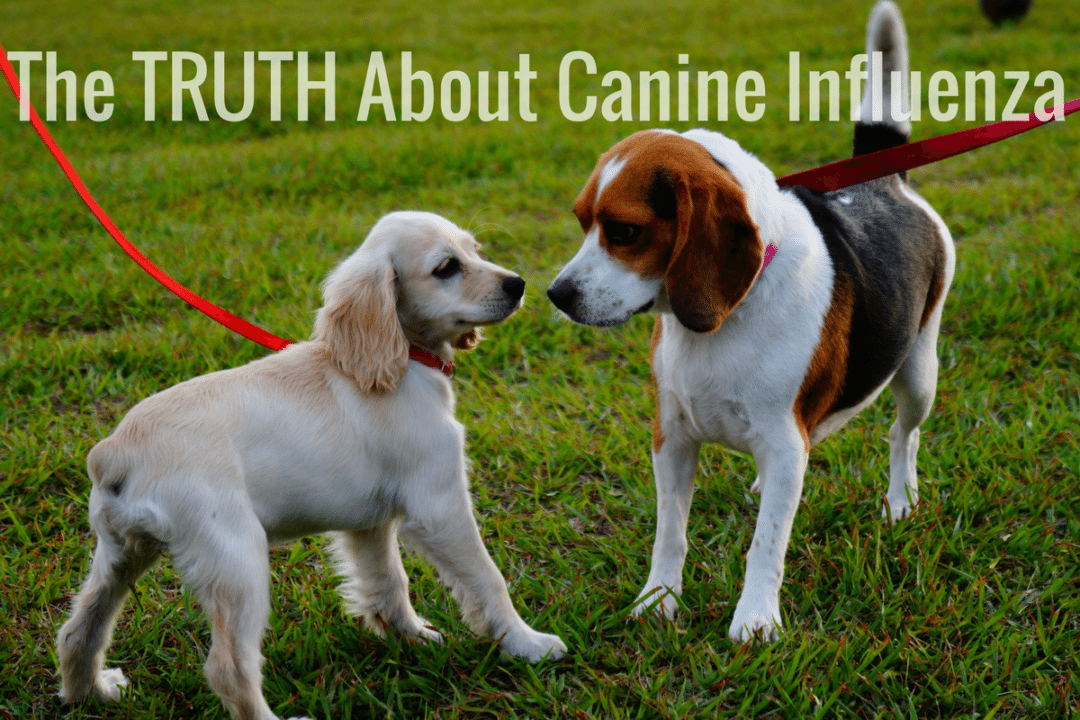Here is what Dr. Wagner and Animals R Special New Albany wants you to know about Canine Influenza:
Canine Influenza (dog flu) is a highly contagious respiratory infection of dogs. There are two known strains of Canine Influenza in the U.S. H3N2 and H3N8. Canine Influenza is highly contagious and spread through coughing and sneezing by an infected dog. Canine Influenza can also be easily spread by contact with infected surfaces and objects.
Dogs suffering with MILD Canine Influenza can develop a cough, slight fever, lethargy, reduced appetite, sneezing and discharge from the eyes and nose. If Canine Influenza is left untreated, dogs can also develop SEVERE symptoms including Pneumonia, high fever and secondary bacterial infections. The fatality rate of Canine Influenza is less than 10% and MOST dogs recover in 2-3 weeks.

Because Influenza viruses are constantly changing the Canine Influenza vaccine is considered a “life style” vaccine. Because the Canine Influenza is a “life style” vaccine, it may not be for every dog.
As a dog owner you should know that any situation that brings dogs together can increase the risk of various illnesses spread among these pets.
The Canine Influenza vaccine we offer at Animals R Special in New Albany covers both known strains of Canine Influenza, H3N2 and H3N8.

Dr. Wagner recommends vaccinating if you are traveling with your pet, frequently go to dog shows, boarding facilities or dog parks. As long as good sanitation practices of these facilities are used, the risk of Canine Influenza is low. The Center for Disease Control and Prevention and The American Medical Association report outbreaks in Chicago, Florida, Georgia, North Carolina,South Carolina, Texas, Kentucky, Tennessee, Missouri, and Illinois.

Vaccinating for Canine Influenza is also helpful but not 100% effective. The best prevention is to vaccinate against Canine Influenza and avoid high traffic dog areas and facilities.
If you want to know more about vaccinating for Canine Influenza and what your pet’s risk is, be sure to contact us!
Because here at Animals R Special we don’t take vaccinating your pet lightly, we recommend additional information before choosing. Visit the following resources for more information:
The American Veterinary Medical Association
The Center for Disease Control and Prevention


